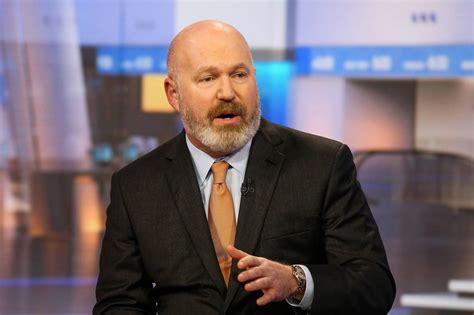A Quote by Barry Ritholtz
Despite all the media coverage, glitz and glam of hedge funds, they have not done well for their investors. They have high - some say excessively high - fees; their short- and long-term performance has been poor.
Related Quotes
Frequent comparative ranking can only reinforce a short-term investment perspective. It is understandably difficult to maintain a long-term view when, faced with the penalties for poor short-term performance, the long-term view may well be from the unemployment line ... Relative-performance-oriented investors really act as speculators. Rather than making sensible judgments about the attractiveness of specific stocks and bonds, they try to guess what others are going to do and then do it first.
The 1969 experience has been a rude awakening for many hedge-fund investors and has left some of them with strong reservations about the whole concept. For the first time in their relatively short history, the funds are not growing: in fact, some have suffered large withdrawals of capital, and a few have actually folded.
We need a federal government commission to study the way our financial services system is working - I believe it is working badly - and we also need more educated investors. There are good long term low-priced mutual funds - my favorite is a total stock market index fund - and bad short term highly priced mutual funds. If investors would get themselves educated, and invest in the former - taking their money out of the latter - we would see some automatic improvements in the system, and see them fairly quickly.
Hedge funds are investment pools that are relatively unconstrained in what they do. They are relatively unregulated (for now), charge very high fees, will not necessarily give you your money back when you want it, and will generally not tell you what they do. They are supposed to make money all the time, and when they fail at this, their investors redeem and go to someone else who has recently been making money. Every three or four years they deliver a one-in-a-hundred year flood. They are generally run for rich people in Geneva, Switzerland, by rich people in Greenwich, Connecticut.
Hedge funds try to produce above-average investment returns using tactics ranging from traditional stock-picking to complex derivative and arbitrage plays. High minimum investments, redemption restrictions and aggressive strategies make them suitable mainly for more sophisticated and well-heeled investors.
Millions of mutual-fund investors sleep well at night, serene in the belief that superior outcomes result from pooling funds with like-minded investors and engaging high-quality investment managers to provide professional insight. The conventional wisdom ends up hopelessly unwise, as evidence shows an overwhelming rate of failure by mutual funds to deliver on promises.
Northleaf is delighted to have been chosen to manage the new fund. We look forward to implementing the fund's long-term strategy of constructing a portfolio of high-potential venture capital funds with the scale and resources to execute their plans, support successful high-growth companies and deliver world-class returns.
The most important thing that a company can do in the midst of this economic turmoil is to not lose sight of the long-term perspective. Don't confuse the short-term crises with the long-term trends. Amidst all of these short-term change are some fundamental structural transformations happening in the economy, and the best way to stay in business is to not allow the short-term distractions to cause you to ignore what is happening in the long term.
When I was 23, 24, I started covering hedge funds - a lot of this was luck - when no one else did. This was before hedge funds were the prettiest girl in school: this was pre-nose job and treadmill for hedge funds, when nobody talked to them - back then, it was just all about insurance companies and money managers.

































